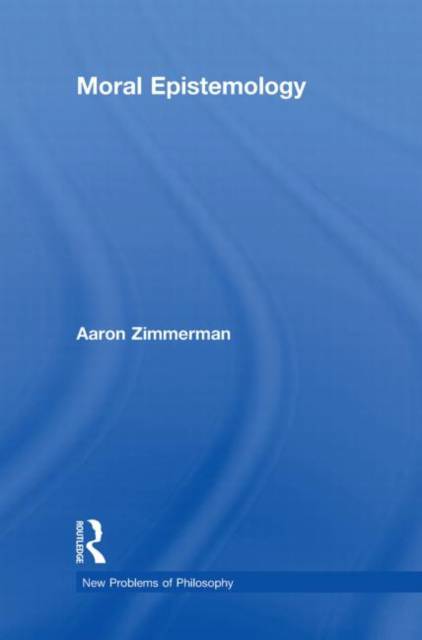
- Retrait gratuit dans votre magasin Club
- 7.000.000 titres dans notre catalogue
- Payer en toute sécurité
- Toujours un magasin près de chez vous
- Retrait gratuit dans votre magasin Club
- 7.000.0000 titres dans notre catalogue
- Payer en toute sécurité
- Toujours un magasin près de chez vous
Description
How do we know right from wrong? Do we even have moral knowledge? Moral epistemology studies these and related questions about our understanding of virtue and vice. It is one of philosophy's perennial problems, reaching back to Plato, Aristotle, Aquinas, Locke, Hume and Kant, and has recently been the subject of intense debate as a result of findings in developmental and social psychology.
In this outstanding introduction to the subject Aaron Zimmerman covers the following key topics:
- What is moral epistemology? What are its methods? Including a discussion of Socrates, Gettier and contemporary theories of knowledge
- skepticism about moral knowledge based on the anthropological record of deep and persistent moral disagreement, including contextualism
- moral nihilism, including debates concerning God and morality and the relation between moral knowledge and our motives and reasons to act morally
- epistemic moral scepticism, intuitionism and the possibility of inferring 'ought' from 'is, ' discussing the views of Locke, Hume, Kant, Ross, Audi, Thomson, Harman, Sturgeon and many others
- how children acquire moral concepts and become more reliable judges
- criticisms of those who would reduce moral knowledge to value-neutral knowledge or attempt to replace moral belief with emotion.
Throughout the book Zimmerman argues that our belief in moral knowledge can survive sceptical challenges. He also draws on a rich range of examples from Plato's Meno and Dickens' David Copperfield to Bernard Madoff and Saddam Hussein.
Including chapter summaries and annotated further reading at the end of each chapter, Moral Epistemology is essential reading for all students of ethics, epistemology and moral psychology.
Spécifications
Parties prenantes
- Auteur(s) :
- Editeur:
Contenu
- Nombre de pages :
- 256
- Langue:
- Anglais
- Collection :
Caractéristiques
- EAN:
- 9780415485531
- Date de parution :
- 21-05-10
- Format:
- Livre relié
- Format numérique:
- Genaaid
- Dimensions :
- 156 mm x 234 mm
- Poids :
- 539 g

Les avis
Nous publions uniquement les avis qui respectent les conditions requises. Consultez nos conditions pour les avis.






